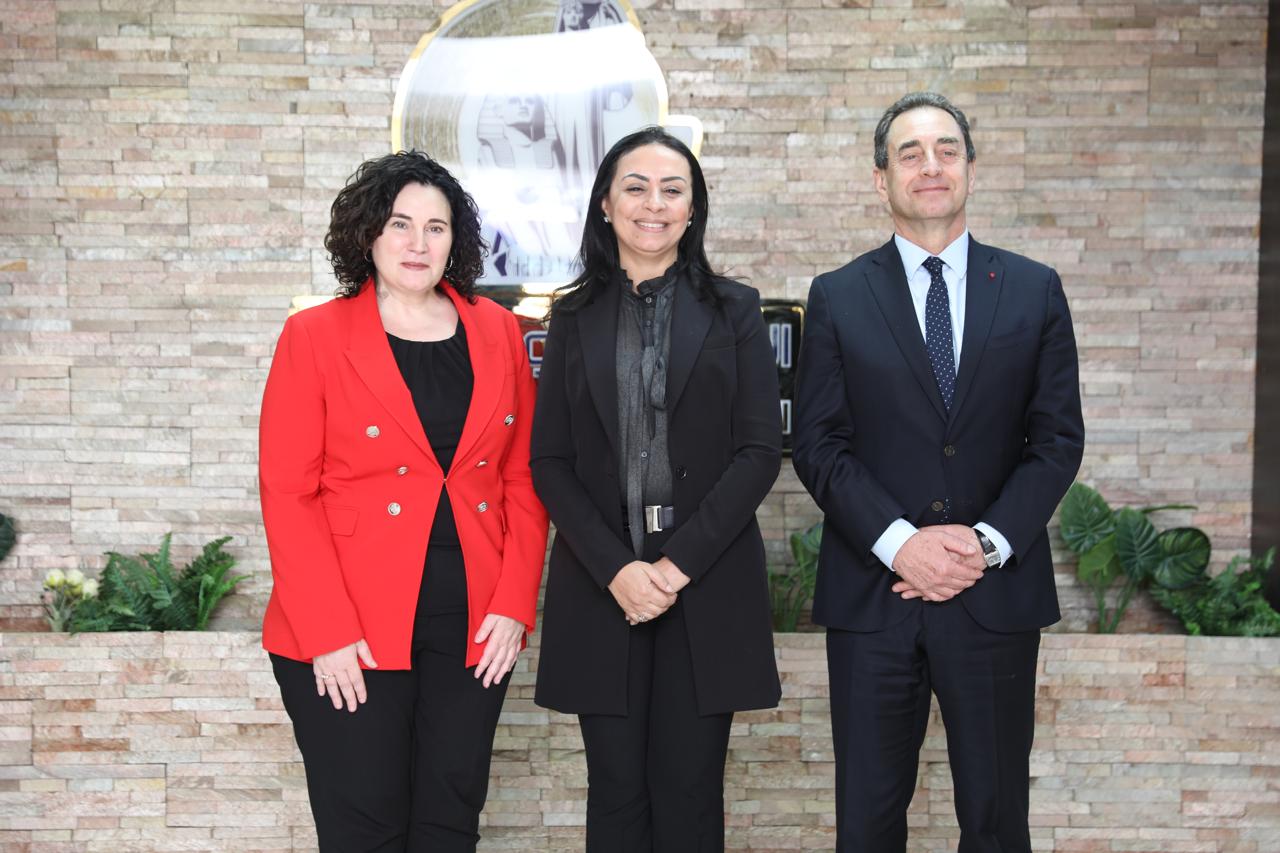Launching a new partnership with the National Council for Women, the Government of France and UN Women Egypt supporting national investments to end violence against women and girls
Date:

Dr. Maya Morsy, President of the National Council for Women (NCW), met with Ambassador Eric Chevallier, French Ambassador to Egypt, and Ms. Christine Arab, UN Women Egypt Country Representative in light of a new partnership with the French government and UN Women Egypt to support national efforts to establish the “Assembled Unit for the Protection of Women Against Violence”. Through this partnership, the Egyptian government will enhance the unit’s accessibility for women and girls with disabilities, who have been subjected to violence.
In her remarks, Dr. Maya Morsy expressed her great contentment with the new partnership with the French government and UN Women Egypt to support national efforts to address the challenges faced by women and girls in reporting cases of violence, through “Assembled Unit for the Protection of Women Against Violence”, and to support women and girls with disabilities’ access to these services. Dr. Morsy reaffirmed Egypt’s commitment to women's empowerment and protection, particularly the issues concerning women with disabilities. in addition to the NCW’s dedication to integrate women with disabilities in all its activities and programs that aim at advancing the status of Egyptian women across all pillars of the National Strategy for the Empowerment of Egyptian Women 2030.
Dr. Morsy also highlighted that under this partnership, the National Council for Women is working on developing a methodology that will assess the compliance of the Assembles unit’s structure and services in line with the needs of women and girls with disabilities; noting that the unit in Cairo is currently being equipped and prepared to ensure equitable access for women and girls with disabilities.
“Combating violence against women and providing support to survivors is a priority of the French feminist foreign policy. France is proud to further deepen its already strong and fruitful partnerships with UN Women and NCW to the benefit of all Egyptian women and girls and especially those with disabilities.” stated H.E. Eric Chevallier, Ambassador of France to Egypt.
“UN Women has worked extensively on supporting the provision of essential services for women and girls who have experienced violence through the development “Assembled Units for the protection of women against violence” in various countries, using a survivor-centered approach. We are proud to work with the National Council for Women and the Government of France to not only support the development and operationalization of the unit in Cairo, but to ensure women living with disabilities have easy access to the” " “Assembled Unit for the Protection of Women Against Violence" services.” stated Ms. Christine Arab, UN Women Egypt Country Representative.
It is important to note that the establishment of the “Assembled Unit for the Protection of Women Against Violence” was announced in 2021 under Prime Ministerial decree. The decree called for the establishment of a pilot unit in Cairo, and the replication of the model in other governorates to enhance coordinated response and referral services.
As part of implementing the Prime Minister's decree to establish the pilot “Assembled Unit for the Protection of Women Against Violence” in Cairo, the National Council for Women is coordinating efforts to provide services that include police reporting, legal aid, and medical aid and forensics and temporary shelters for women and girls survivors of violence. This comes in light of addressing the challenges that women usually face when reporting cases of violence as they are often required to visit multiple locations and service providers; in addition to managing travel and communications logistics outside their communities. For women and girls with disabilities, the process of accessing essential services is even more complex.
The efforts implemented under this partnership fall under the National Strategy for the Empowerment of Egyptian Women 2030.